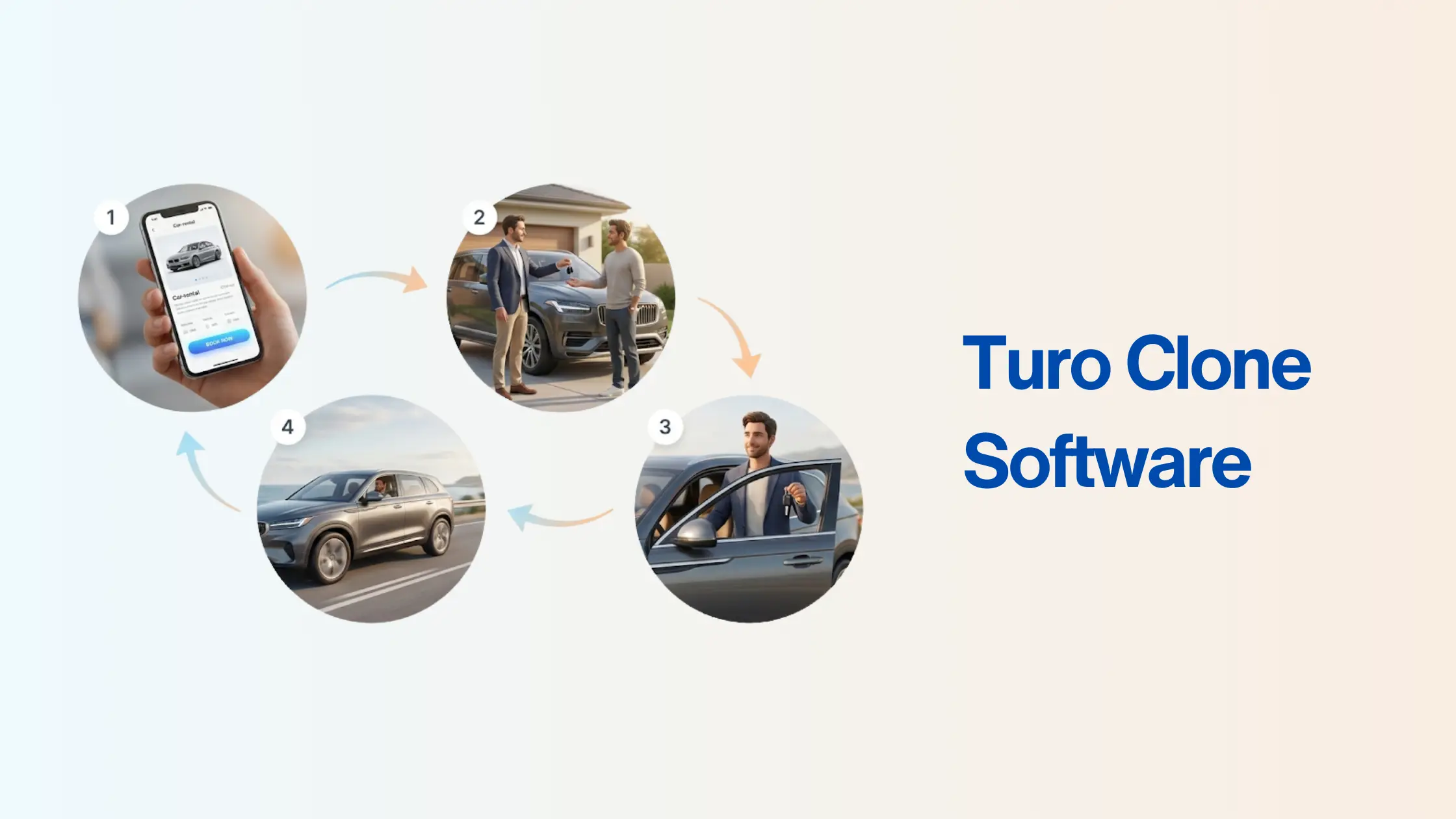The gig economy is rapidly transforming how people work, with projections estimating it will reach $455.63 billion by 2030. This shift towards flexible, on-demand work is fueled by freelancers, independent contractors, and digital platforms that connect talent with businesses worldwide.
At the heart of this revolution are readymade apps, which provide instant, scalable solutions for gig platforms. These apps eliminate the need for costly custom development, allowing entrepreneurs to launch quickly and tap into the booming gig economy. From AI-powered job matching to secure payments, readymade apps are shaping the future of work.
The Rise of Freelance Platforms: From Idea to Global Phenomenon
The gig economy didn’t emerge overnight—it evolved from early classified job boards into today’s sophisticated digital marketplaces. In the early 2000s, platforms like Elance (now Upwork) and Freelancer.com laid the foundation by connecting businesses with remote workers. However, these platforms had limitations—slow onboarding, high fees, and rigid structures that didn’t scale well.
Today, readymade gig apps have revolutionized the industry by offering pre-built, customizable solutions that allow entrepreneurs to launch their own platforms in days, not months. Companies like Fiverr, Uber, and TaskRabbit proved that gig marketplaces could thrive, inspiring a wave of niche platforms (e.g., Toptal for elite freelancers, Rover for pet care).
The shift from custom-built software to white-label, readymade apps has been a game-changer. Startups no longer need to invest $50,000+ in development—instead, they can deploy a feature-rich app for a fraction of the cost and start acquiring users immediately.
Key Features of Readymade Apps Powering the Gig Economy
Modern gig economy apps succeed because they solve critical pain points for both freelancers and clients. Here’s how readymade apps are engineered for success:
1. Instant Deployment
Unlike custom apps that take 6-12 months to build, readymade solutions can be launched in under a week.
Example: Zipprr’s Uber Clone allows ride-hailing startups to go live with pre-integrated GPS, payments, and driver tracking.
2. Scalability
Cloud-based infrastructure ensures the app can handle thousands of users without crashing.
Case Study: UrbanClap (now Urban Company) scaled from a small startup to a $2B+ company using scalable gig tech.
3. Built-in Payment Gateways
Secure Stripe, PayPal, and Razorpay integrations prevent payment disputes.
Stats: 75% of freelancers cite payment delays as a major issue—automated payouts solve this.
4. AI & Automation
Smart matching algorithms (like Upwork’s job recommendations) improve gig placements.
Chatbots handle customer queries, reducing support costs.
5. User-Friendly UI/UX
A sleek, intuitive design keeps users engaged—poor UX causes 70% of app uninstalls.
Market Trends: Why Businesses & Freelancers Prefer Readymade Apps
The demand for gig platforms is skyrocketing, driven by:
1. On-Demand Services Boom
The Uberization of services has expanded beyond taxis to home services (Handy), deliveries (DoorDash), and healthcare (Pager).
Stat: The on-demand market will hit $335B by 2025 (PwC).
2. Cost-Effectiveness
Building a custom app costs $50K–$200K, while readymade solutions start at $5K–$15K.
3. Faster Time-to-Market
Startups using pre-built apps can launch 10x faster than competitors coding from scratch.
4. Mobile-First Gig Work
67% of freelancers find work via mobile apps (Upwork 2023 Report).
Challenges in the Gig Economy & How Readymade Apps Solve Them
Despite its growth, the gig economy faces hurdles—readymade apps provide built-in fixes:
| Challenge | Solution in Readymade Apps |
|---|---|
| Trust Issues | Verified profiles, ratings & reviews |
| Payment Fraud | Escrow systems & automated payouts |
| Finding Work | AI-powered job matching |
| Admin Hassles | Automated invoicing & analytics |
Example: Fiverr’s escrow system holds payments until gig delivery, reducing scams.
The Impact of Remote Work on Gig Economy Growth
The post-pandemic remote work boom has accelerated gig adoption:
57% of freelancers work remotely (Statista 2024).
Platforms like Toptal and We Work Remotely cater exclusively to remote gigs.
Readymade apps enable cross-border hiring—businesses can hire freelancers from India, Philippines, or Europe seamlessly.
Future of Freelancing: Where Readymade Apps Are Heading
The next wave of gig platforms will leverage:
1. Blockchain for Secure Contracts
Smart contracts (Ethereum-based) can automate gig agreements.
2. AI-Powered Gig Matching
ChatGPT-like assistants could negotiate gig terms automatically.
3. Niche Market Expansion
Healthcare gigs (Pager), legal freelancing (Lawyers.com), and micro-tasking (Amazon MTurk) are growing.
4. No-Code Platforms
Entrepreneurs can build gig apps without coding using tools like Bubble + Zipprr templates.
How Zipprr Leads the Market in Readymade Gig Economy Apps
Zipprr has become the top choice for entrepreneurs launching gig platforms—here’s what sets it apart:
90-Day Free Tech Support – Smooth Setup & Troubleshooting
Unlike competitors who charge extra for support, Zipprr provides three months of free technical assistance, helping clients with:
App deployment
Server configuration
Bug fixes
Third-party API integrations
This ensures startups don’t get stuck after purchase.
One-Time Fee – No Hidden Subscriptions
Many SaaS-based gig platforms charge monthly fees ($300–$1,000+ forever), eating into profits. Zipprr follows a one-time payment model, allowing businesses to own the software outright without recurring costs.
Free App Store Submission – Saves $1,000+ in Developer Fees
Getting an app approved on the Apple App Store & Google Play is complex and expensive (typically $1,000–$5,000 in developer fees). Zipprr handles submission and resubmission for free, ensuring a hassle-free launch.
100% Source Code Ownership – Full Customization Freedom
Most readymade app providers lock clients into restrictive licenses, but Zipprr delivers full source code access, allowing businesses to:
Modify features
Add custom integrations
Rebrand freely
Scale without restrictions
Premium UI/UX – Reduces User Churn
A poorly designed app loses 70% of users within a week. Zipprr’s apps feature polished, intuitive interfaces inspired by industry leaders like Uber and Fiverr, ensuring high retention rates.
Final Thoughts
The gig economy is booming, and readymade apps are the fastest, most cost-effective way to tap into it. Whether you’re building the next Upwork, Uber, or a niche freelance platform, pre-built solutions cut development time and costs while offering scalability and security.
With leaders like Zipprr offering affordable, feature-packed apps, there’s never been a better time to launch a gig platform. The future of work is flexible, digital, and on-demand—will your business be part of it?







